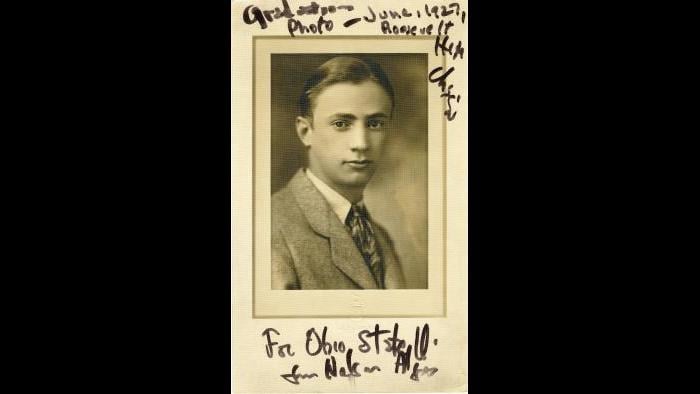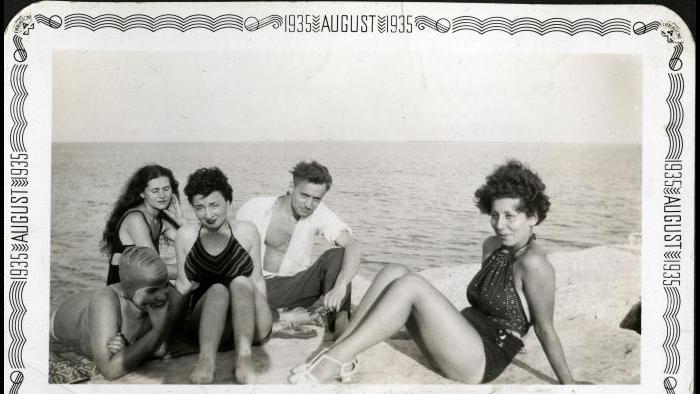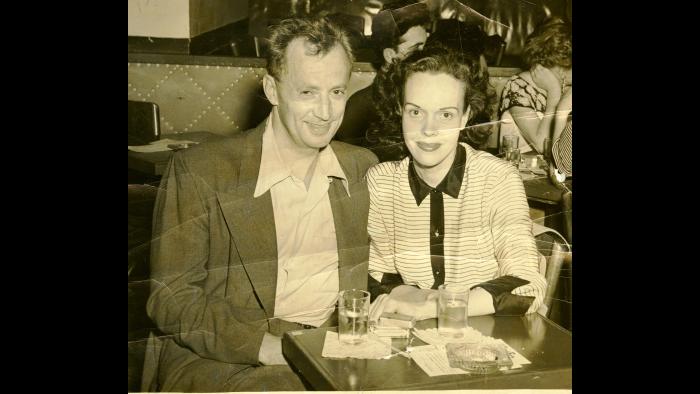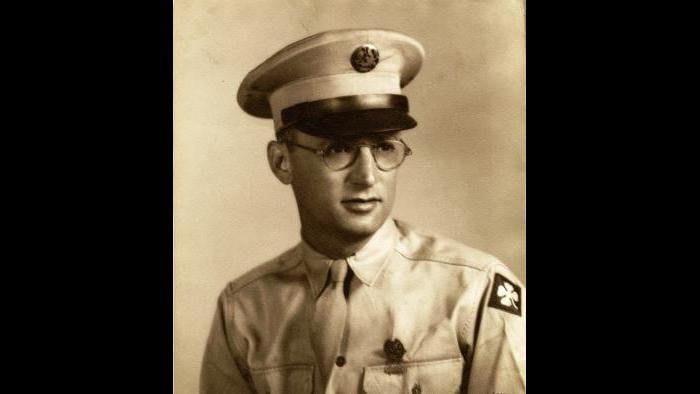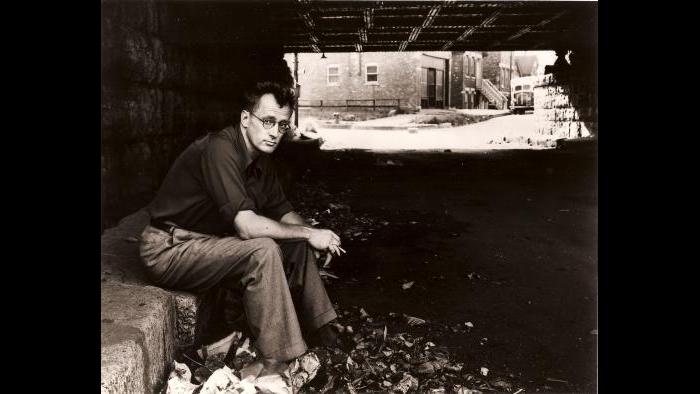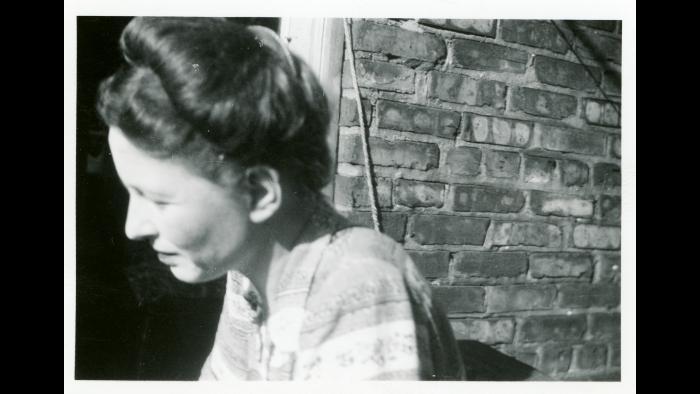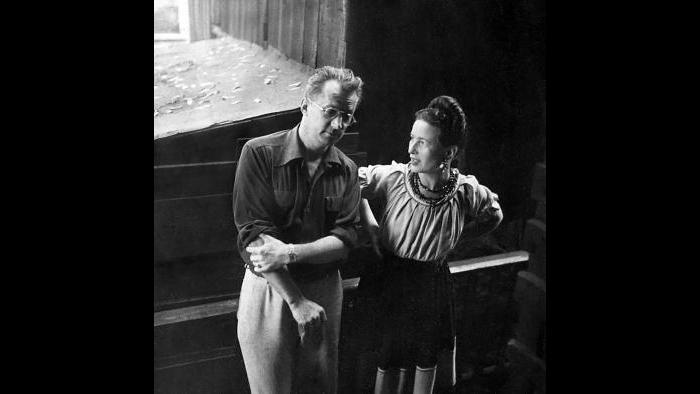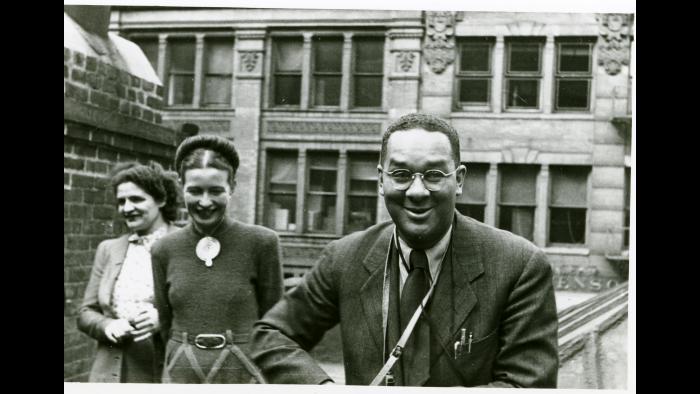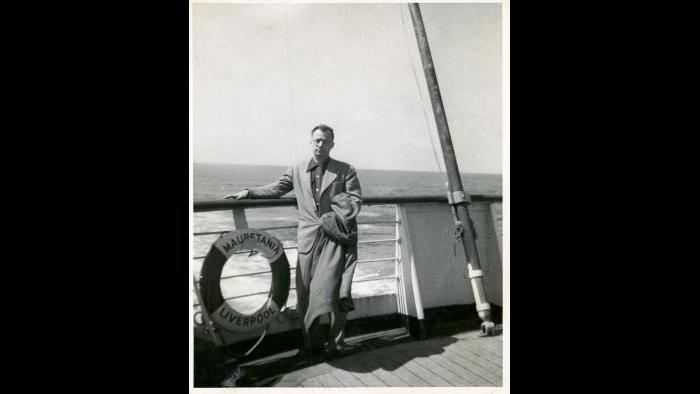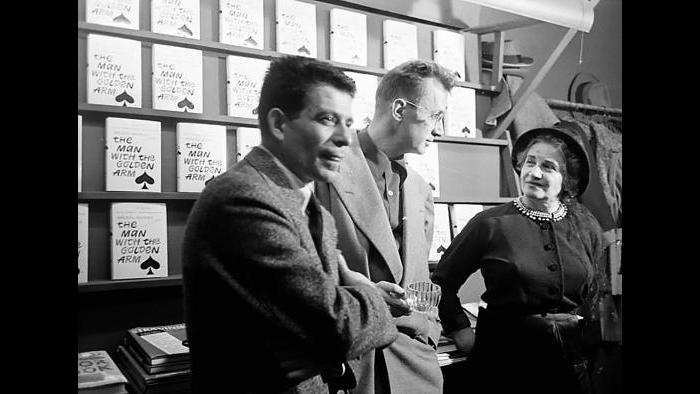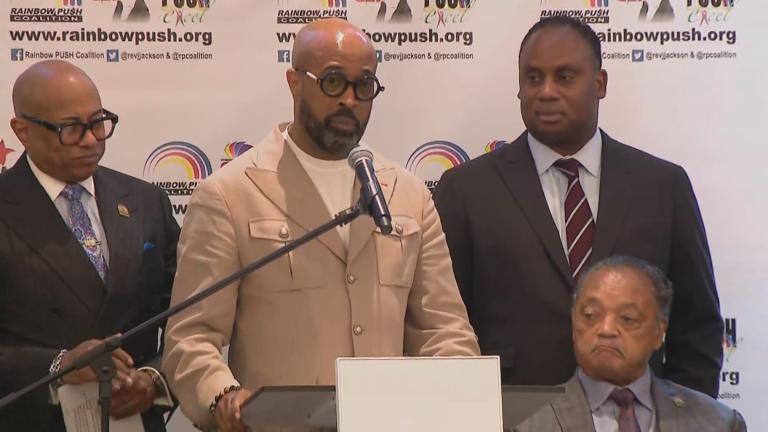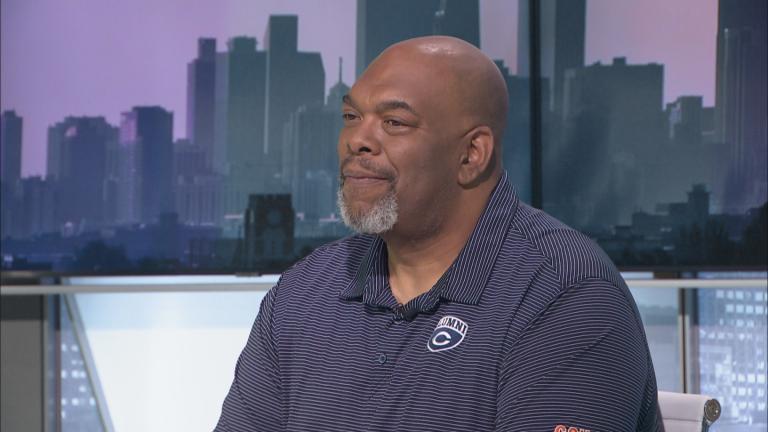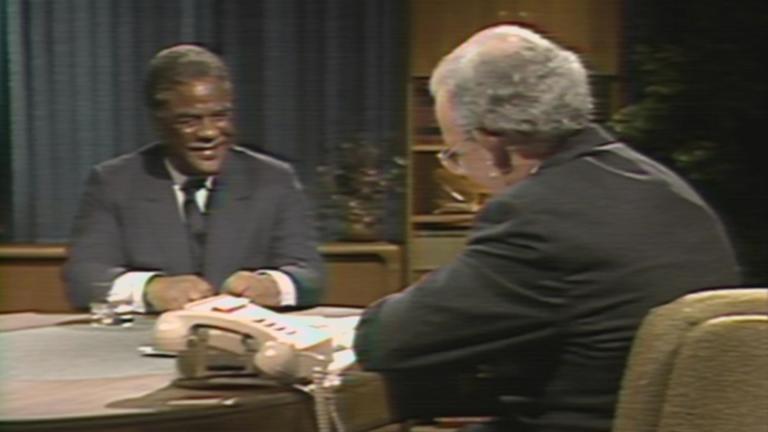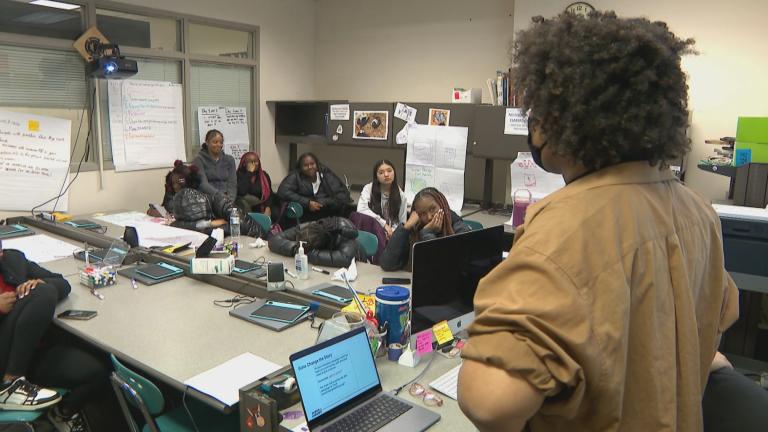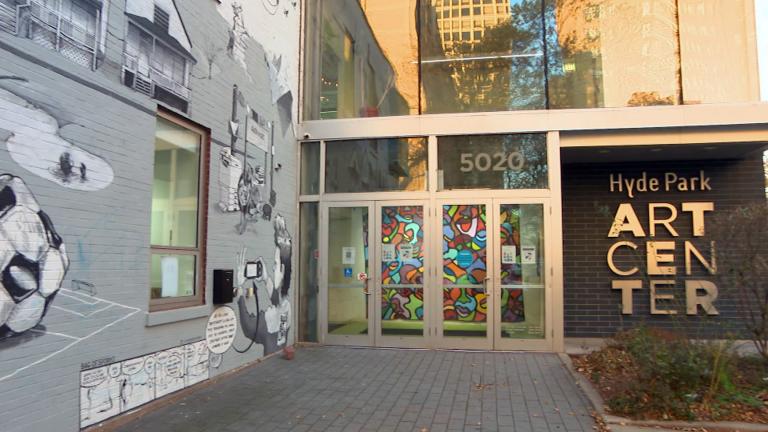Chicago writer Nelson Algren chronicled the seedy side of Chicago. His compassionate portrayals of the down-and-out won him the first ever National Book Award in 1950. Ernest Hemingway called him one of America's greatest novelists, second only to William Faulkner.
A new biography, the first in 25 years about him, sheds light on Algren's life and legacy. It's called “Algren: A Life,” and it's by Chicago Tribune reporter Mary Wisniewski.
Below, an excerpt from “Algren: A Life.”
![]()
In the early summer of 1947, Nelson had about two hundred pages of his third novel stacked on his desk beside his black Royal typewriter, along with cascading piles of notes and corrections, mixed up with letters and shopping lists. But he was running into his familiar plot troubles. Ken McCormick at Doubleday thought it was shaping up, and Nelson was beginning to feel better about it himself, but admitted, “I still don’t see it clearly all the way.” He told Ken he knew damned well that it wouldn’t be in publishable shape by the following spring. Nelson sent the manuscript to his agent, Madeleine Brennan, who thought the story of the professional card dealer and war veteran needed a peg—something to hang it all on. Nelson had considered a drug angle—the use of morphine to ease pain during World War II was something he would have witnessed as a litter bearer in the army. Though the drug had been used as far back as the Civil War, by World War II, innovations in needle design allowed medics to administer it right on the field. The morphine problem among returning veterans was also in the news. In January of 1947, newspapers around the country had run stories about the Jewish Chicago boxer Barney Ross, who had gotten addicted after suffering malaria and a shrapnel wound in the war. He had kicked morphine in four months after checking himself into a public health facility in Lexington, Kentucky, and called the narcotic “the toughest foe of his career.” But while morphine seemed promising and innovative as a hook for the novel, Nelson was not sure he knew the issue closely enough to write about it. He needed details and close encounters, or he could not write about anything.
One night he got his chance—a Polish friend named Jack asked him to go out for a beer on
Madison Street. By the time they emerged from the tavern at two in the morning, it was raining, and Jack invited Nelson to take shelter at his nearby home. Nelson followed him across the wide, glistening street, over the broken sidewalk, into a warren-like building. Going upstairs, Nelson found Jack standing behind a curtain in a filthy flat, swinging his arm up and down. “Jack is having trouble,” somebody said. Misty with beer, Nelson wondered what he was seeing, and was disturbed by Jack’s swinging arm. What did it mean? A few more shadowy people showed up, and took turns carrying cigar boxes into the bathroom. Someone explained to Nelson that they were just having breakfast—would he like some?
“No, I guess I had breakfast,” Nelson said.
“You want to see how it’s done?” a man asked him.
“Hell, no, I don’t want to see how it’s done,” Nelson retorted.
Despite his taste for the darker realities and his experience as a medic, he did not like needles. If someone went into a bathroom with a cigar box full of something under his arm, Nelson did not care to see whatever he did in there. After this rainy morning, he paid other visits to the place on Madison to listen to jazz records and learn more about the habits of people who were on narcotics. This included a lack of normal groceries and cravings for chocolate sweet rolls and lollipops. They slept lightly and at odd hours—between seven and eleven in the morning, when working people were away and the streets quiet. Then they’d wake up sneezing in their “evening country,” eyes watering, anxious for another fix. Jack was a naturally strong person, and Nelson believed him when he said he would kick the habit if he felt it was getting the best of him. But one night his wife called Nelson and said that Jack was sick and could not see a regular doctor. He needed his own doctor, meaning his dealer. Two of Jack’s junkie friends came by Nelson’s flat at Wabansia and Bosworth in a cab, and together the three of them drove north to make a deal for nine dollars, and brought back Jack’s medicine to West Madison. Jack was weeping and pouring sweat. “Well, you know, it happens to everybody,” Jack explained, and Nelson felt contempt for his weakness. Nelson had more sympathy for another of Jack’s friends, a man with a pushed-in face who unlike Jack did not want to be on dope. “He wasn’t Frankie Machine, but when I think of him I think of this guy,” Nelson explained. There was a cabbie who played drums at night and drove around the city during the day looking for fixes. Nelson did not want to visit the Madison Street warren too often because it took time away from his writing. But he would let the junkies come up to his own place and do what they needed to do. He claimed he never tried it himself; to write, he needed both proximity and a safe distance—a sometimes uneasy balance.
Nelson also knew about the effects of withdrawal through his friend Margo, a smart, bookish, vulnerable young woman from the country who had become a Madison Street prostitute. A fan of the Stoics in his college days, Nelson thought anything could be broken by simple willpower, and he wanted to help Margo break her habit. He convinced her to go off drugs, and he put her to bed in his Wabansia apartment, heroically planning to see her through the worst of withdrawal. “I don’t want you to see what I look like when I’m kicking,” she protested. By midnight she was so sick she was blind, and Nelson, fearing she would go mad or die, put on his army jacket and went out into the rain to look for her connection, asking random hookers for help for Margo, only to see them flee into the night. He went to a White Tower hamburger stand at Madison and Aberdeen, where the staff dressed like nurses to emphasize how clean everything was—an eerie, bright oasis in the gray, early-morning gloom. There, drinking coffee, he found “a little lame man, wearing double-lensed glasses and a cap shadowing his eyes. . . . He looked so wrong he had to be somebody,” Nelson remembered.
“I’m a friend of Margo’s and she needs help,” Nelson whispered.
“She ought to know better than to send a square down here,” Max retorted, but returned with Nelson to Wabansia, where Margo was lying facedown on the floor in a pool of sweat. Nelson remembered how she started to smile as soon as Max touched her, before the needle even went in. Nelson saw Max as a blessed friend instead of a villain—a contrast to the role he assigned to Nifty Louie in the novel. Nelson saw in the addict’s revolt against society “a special kind of grace. When he shoves a needle into his vein it is, in a sense, to spare others. . . . Things are going wrong in the world, so, in a sort of suicidal truculence, he impales himself.”
Excerpted from Algren: A Life (Chicago Review Press; Oct. 1, 2016), by Mary Wisniewski.
Related stories:
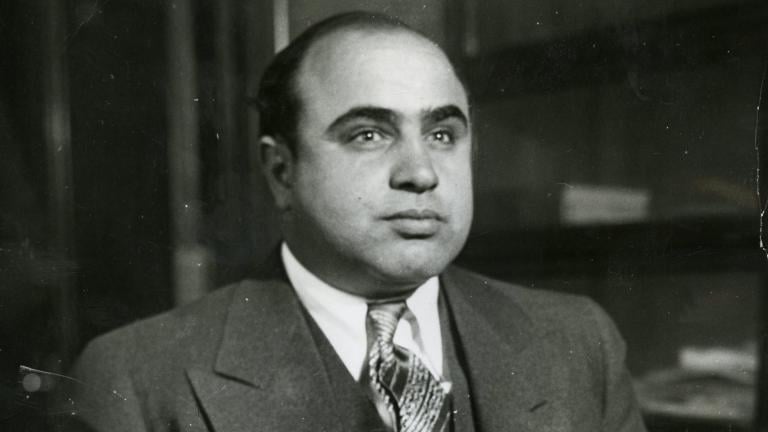 New Biography Sheds Light on Private Life of Al Capone
New Biography Sheds Light on Private Life of Al Capone
Nov. 16: The continuing fascination with gangster Al Capone. We speak to the author of a new book that looks at the private life of the notorious criminal.
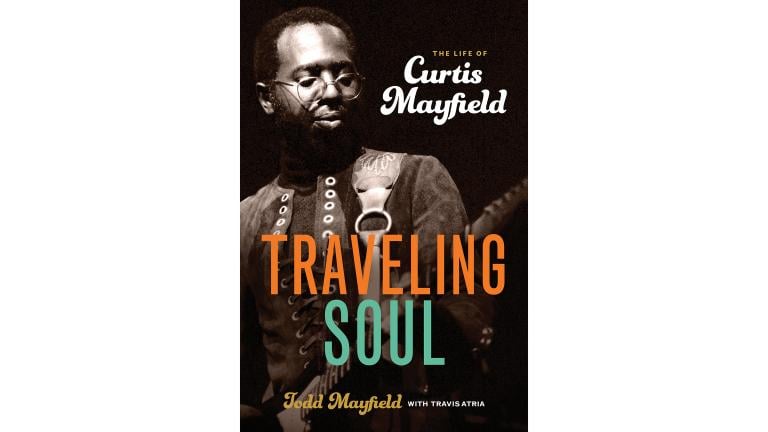 Story of Curtis Mayfield Told by Son in ‘Traveling Soul’
Story of Curtis Mayfield Told by Son in ‘Traveling Soul’
Sept. 28: The son of Chicago native Curtis Mayfield tells the musical great's story in the new book “Traveling Soul.” Todd Mayfield tells us about his talented father's turbulent life.
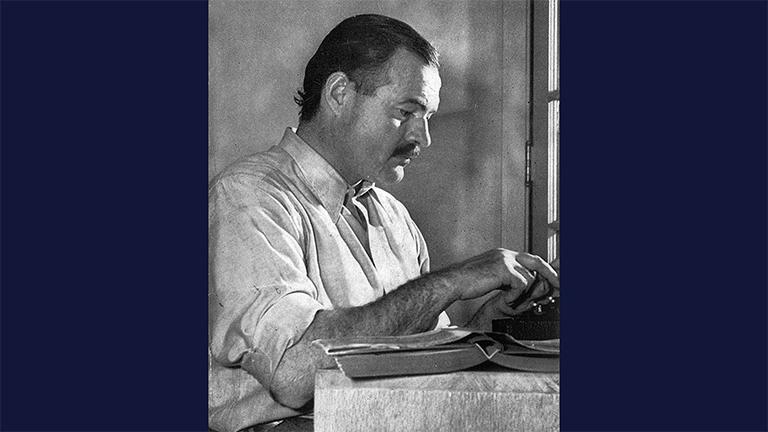 Oak Park Collections Reveal ‘Hidden Hemingway’
Oak Park Collections Reveal ‘Hidden Hemingway’
July 14: A new book combs through the local archives to document the life of an American literary lion, Ernest Hemingway.



